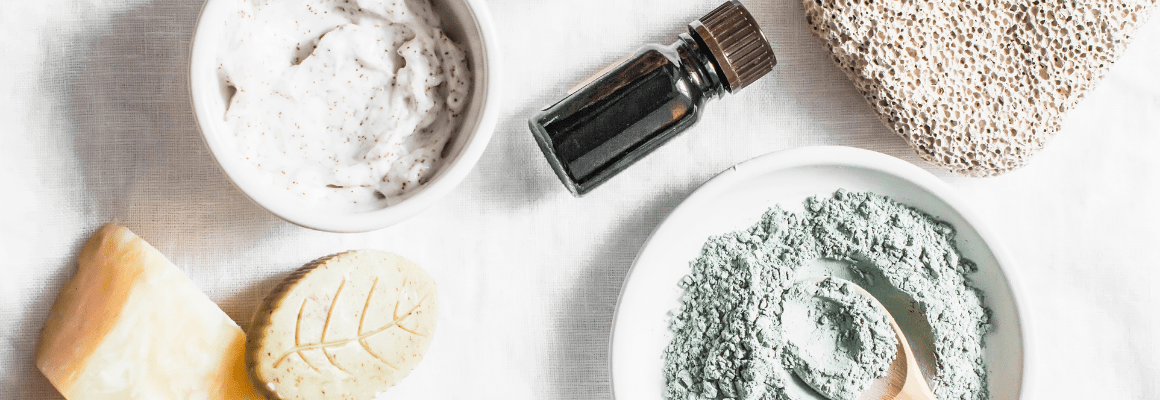Are you suffering from itchy skin all over your body? Not only is itchy skin highly uncomfortable, but it can make it extremely difficult to get through the day. Itchy skin can also prevent you from sleeping through the night.
Those having to deal with unbearable itching often struggle to concentrate at work or school and spend most of the night tossing and turning. This can lead to long-term negative consequences and have a significant impact on overall health and emotional well-being. For example, a person dealing with intense itching is more likely to experience reduced academic or work performance, suffer from increased anxiety or depression and deal with increased irritability.
As you can see, the effects of an itchy skin rash are far more than just an unpleasant physical sensation.
The good news is that itchy skin symptoms can be managed and controlled with some simple lifestyle changes and natural skincare treatments.
Keep reading to discover the best treatments for itchy skin that will help you care for your skin and find the skin relief you deserve.
Understanding the Cause of Dry Skin and Itchy Skin
A person may experience itching for a variety of different reasons:
itchy skin can be the result of dry skin, while for others, it can result from a more serious medical condition. While there are common culprits, it’s important to remember that the cause of itching can vary from person to person. What triggers a red rash in someone else may not cause the same reaction in you.
As well, the cause of your itching can change with time or under certain conditions. This makes it highly important to understand your body and how it works.
If you’re not sure what is causing your skin to itch, be sure to speak to a medical professional. Your doctor or dermatologist will be able to help you pinpoint the exact cause of your rash and help you find an appropriate solution. This is incredibly helpful if your itchy or dry skin results from a health condition that requires medical attention.
Here are some reasons your skin might be itchy:
Common Allergies
One of the most obvious reasons for itchy skin is an allergic reaction such as hives. Hives are red and raised areas of the skin that appear when the body releases a chemical called histamine in response to an allergic reaction.
They often occur in clusters of swollen welts and may disappear and reappear within short periods. Hives range in size and can appear anywhere on the body. Hives are a fairly common allergy attack. An estimated 20% of the population is bound to experience this itchy rash least once in their lives. In addition to intense itchiness, a rash from hives can be accompanied by pain and tenderness, including stinging. Although the cause of hives can vary from person to person, common causes include contact with an irritant in the environment or an allergic reaction to medications or food. Common causes of a food allergy include eating gluten, shellfish, soy, dairy, and nuts.
Most common household objects that you’re likely to come into contact with daily can also trigger hives. These include laundry detergents, jewelry containing nickel, cleaning supplies, beauty products, and fabrics such as spandex, latex, and polyester.
Dry Skin
Many potential causes of itchy skin stem from having dry skin. Some people are naturally born with dry skin, while others can be the result of certain conditions. For example, many people note that the skin gets drier and subsequently itchier as they age. Research indicates that 50% of adults over age 50 are more likely to suffer from dry skin than their younger counterparts. This is because the body naturally produces less oil as it ages.
Pregnancy
Due to all the hormone changes, pregnant women are also more likely to experience dry and itchy skin. When the body is expecting, the skin loses elasticity and moisture as it is forced to adapt to a growing baby.
For this reason, pregnant women often experience itchy skin on their stomachs. However, itchiness can also develop on other body parts, including their arms, legs, and breasts.
Extreme Temperatures
Another cause of dry skin can be extreme temperatures. For example, many people note that their skin feels drier and itchier during the cold winter months when cooler and humidity levels are lower. With less moisture in the air, the skin becomes naturally drier.
As water tends to dry out the skin, those who work in water-based jobs, such as hairdressing, catering, and cooking, are also more at risk for itchy skin. This is because water further strips the skin of its natural oils.
Finally, your itchy skin can be the result of a skin condition like psoriasis or eczema.
Eczema and Itchy Skin
Eczema is an auto-immune disease characterized by a damaged skin barrier that has trouble retaining moisture. Because of this, those with eczema are likely to experience chronic dryness. This is what makes itchiness one of the prime symptoms of this skin condition.
Other symptoms include a red rash, flakiness, scaliness, and in some cases, even small blisters that may ooze fluids. If intense scratching persists, the skin may develop a thick, leathery texture. This is known as lichenification.
Symptoms of eczema can vary from person to person, as well as in degrees of severity. For example, a person may experience intense flare-ups, while at other times, symptoms may hardly be noticeable at all. In addition, although eczema usually develops during childhood, the condition can develop at any age.
A common condition, eczema, affects approximately 10-20% of the worldwide population. Despite this staggering statistic, however, there is still much negative stigma surrounding eczema, as well as a general lack of awareness.
For example, there are still people who believe eczema is contagious or the result of poor hygiene. Both of these are untrue. Research isn’t sure of the exact cause of eczema. That being said, it’s believed to be linked to a combination of genetics and environmental factors. This means that those with a family history of eczema are more likely to suffer from the condition themselves.
Environmental factors include pet fur, mold, pollen, and contact with irritating substances like cleaning supplies, beauty products, or clothing. Stress, sweat, and an unhealthy gut are also potential causes.
Due to the itch-scratch cycle, many people with eczema experience intense itching. Relentless scratching can cause the skin to crack or bleed. This causes the skin to become more vulnerable to infection as bacteria can quickly enter.
That’s why, although it’s easier said than done, it’s so important to prevent scratching as much as possible.
If you believe your eczema may be infected, please speak to a medical professional as soon as possible.
Should I See a Doctor?
Thankfully, itchy skin is usually not a severe medical problem. Based on the causes mentioned above, the itching will usually go away on its own and with the help of some moisturizers and natural treatments.
However, suppose your itching has not subsided within two weeks of applying natural medications. In that case, it’s worth speaking to a medical professional. This is also true if itching has come about suddenly and for no apparent reason. Finally, talk to a medical professional if itching is accompanied by bodily changes, including fever, night sweats, and extreme weight loss.
Treatments for Itchy Skin
Can Aloe Vera Help Beat the Itch?
Is there anything aloe vera can’t do? This powerful plant is far more than just pretty household decor. You’ve likely already used aloe vera to find soothing relief from a sunburn. Still, this natural healing agent offers plenty more health benefits to the skin.
Humans have been using aloe vera to treat a variety of dermal issues for hundreds of years. The gel derived from its leaves contains over 75 nutrients, all of which offer different health benefits to the skin.
With the help of aloe vera, you can reduce inflammation, calm itchiness, and soothe skin pain. Highly moisturizing, aloe vera can also provide a boost of hydration to combat dry skin.
To add aloe vera to your natural skincare routine, simply cut open an aloe leaf, squeeze out the gel, and apply directly to the affected area. You can also find it as a safe, common ingredient in many natural skincare products.
Coconut Oil Treatment
Many people use coconut oil to find relief for inflamed and itchy skin because this tropical fruit offers many health benefits to the skin.
To start with, it makes an excellent moisturizer thanks to a fat called medium-chain triglycerides. This gives it the ability to quickly penetrate the skin and provide a much-needed boost of moisture. This also helps it combat the drying effects of eczema and psoriasis, as well as dry skin. In addition, if scratching causes the skin to crack or bleed, you can use coconut oil to help reduce the risk of infection.
To care for your skin and find the soothing relief you deserve, we recommend you take a gentle coconut oil bath in lukewarm water. Alternatively, you can apply this natural treatment directly to slightly damp skin.
Last but not least, check out our soothing Coconut and Sunflower Oil Soap bar. In addition to coconut oil, it contains sunflower oil and shea butter. This fatty cleanser is sure to leave your skin feeling soft and smooth. Feel free to use it as a full-body wash or as a hand soap throughout the day.
Using Colloidal Oatmeal to Treat Itchy Skin
Another gentle way to care for your skin is by relaxing in a colloidal oatmeal bath. Colloidal oatmeal is finely ground oatmeal that easily dissolves in water. Rich in beta-glucans, it helps reduce itchiness and decrease inflammation. Thanks to its powerful antioxidant properties, it can also help reduce flakiness and improve skin roughness.
To use this natural remedy to care for your skin:
- Begin by grinding 2-3 cups of the oatmeal in a coffee grinder or food processor.
- Pour the colloidal oatmeal into the tub as the water is filling.
- Sit back, relax, and enjoy this gentle self-care activity.
You deserve it!
The Best Natural Itchy Skin Treatment
Wet wrap therapy is an easy way to care for your itchy skin. This simple at-home treatment provides a quick boost of hydration and offers soothing relief to the areas you need it most. It’s easy to do:
- Start by applying a natural cream to the affected area, such as this Organic Manuka Skin Soothing Cream.
- Cover with a damp piece of clothing such as these hypoallergenic bandages from Remedywear™.
- Apply a dry layer over the top to allow the emollient to permeate the skin better.
We recommend leaving the wraps on overnight or for a minimum of two hours.
If you’re looking for full-body coverage, check out these form-fitting pants available for adults and kids. With a legging-like fit, they’re great for wearing underneath regular clothing during the day or alone as pajamas. They're also the perfect treatment to reduce itching, as well as to prevent excessive scratching.
To relieve itching on the stomach, chest, back, and arms, we recommend these Remedywear™ long sleeve shirts for adults and kids. They’re an excellent choice for anyone suffering from sunburns, hives, rashes, or even sensitive skin conditions like eczema or psoriasis.
Learn More: How to Treat Itchy Skin at Night










